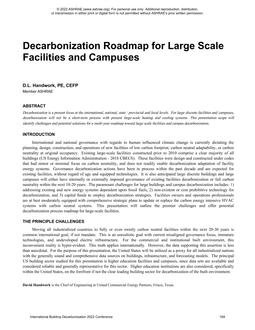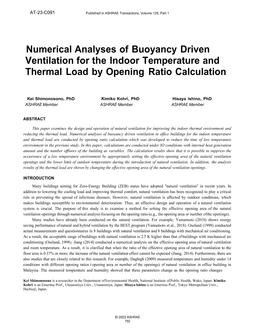Seminar 30 — The Solar Panel: Enabling Renewables' Grid Integration with Thermal Energy Storage Systems
Click here to purchase
This product is a zip file that contains files that consist of PowerPoint slides synchronized with the audio-recording of the speaker, PDF files of the slides, and audio only (mp3 format) as noted.
Integrating renewable electricity on the grid requires system flexibility. This flexibility can come from several building end-uses, but it should not impact occupant comfort or safety. This is possible by using thermal energy storage, which enables flexibility of HVAC&R loads while still delivering cooling, heating or domestic hot water when needed. This session presents three grid-connected thermal storage applications that reduce utility costs for building owners while also providing flexibility that the grid needs for higher renewable penetration. The presenters describe how smart controls are critical to facilitate renewable electricity generation, and, in one application, electric vehicle charging.
- Optimization of Photovoltaic Self-Consumption with Residential Electric Water Heaters< /br> Celeste Fieberg, Student Member, Lafayette College, Easton, PA
- Enabling Grid Penetration of Renewables with Residential Cool Thermal Energy Storage< /br> Amy Van Asselt, Ph.D., Associate Member, Lafayette College, Easton, PA
- Synergies between Building-Sited Batteries and Thermal Energy Storage< /br> Jason Woods, Ph.D., Associate Member, National Renewable Energy Laboratory, Golden, CO
Product Details
- Published:
- 2023
- Units of Measure:
- Dual
- File Size:
- 1 file , 75 MB
- Product Code(s):
- D-TO22Sem30
Seminar 30 — The Solar Panel: Enabling Renewables' Grid Integration with Thermal Energy Storage Systems
Click here to purchase
This product is a zip file that contains files that consist of PowerPoint slides synchronized with the audio-recording of the speaker, PDF files of the slides, and audio only (mp3 format) as noted.
Integrating renewable electricity on the grid requires system flexibility. This flexibility can come from several building end-uses, but it should not impact occupant comfort or safety. This is possible by using thermal energy storage, which enables flexibility of HVAC&R loads while still delivering cooling, heating or domestic hot water when needed. This session presents three grid-connected thermal storage applications that reduce utility costs for building owners while also providing flexibility that the grid needs for higher renewable penetration. The presenters describe how smart controls are critical to facilitate renewable electricity generation, and, in one application, electric vehicle charging.
- Optimization of Photovoltaic Self-Consumption with Residential Electric Water Heaters
Celeste Fieberg, Student Member, Lafayette College, Easton, PA
- Enabling Grid Penetration of Renewables with Residential Cool Thermal Energy Storage
Amy Van Asselt, Ph.D., Associate Member, Lafayette College, Easton, PA
- Synergies between Building-Sited Batteries and Thermal Energy Storage
Jason Woods, Ph.D., Associate Member, National Renewable Energy Laboratory, Golden, CO
Product Details
- Published:
- 2022
- Units of Measure:
- Dual
- File Size:
- 1 file
- Product Code(s):
- D-TO22Sem-30
- Note:
- This product is unavailable in Russia, Belarus


